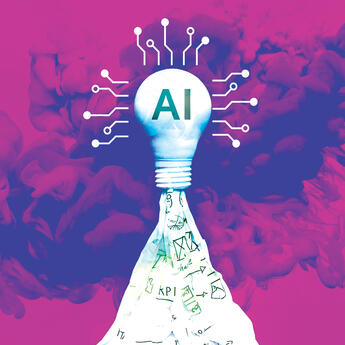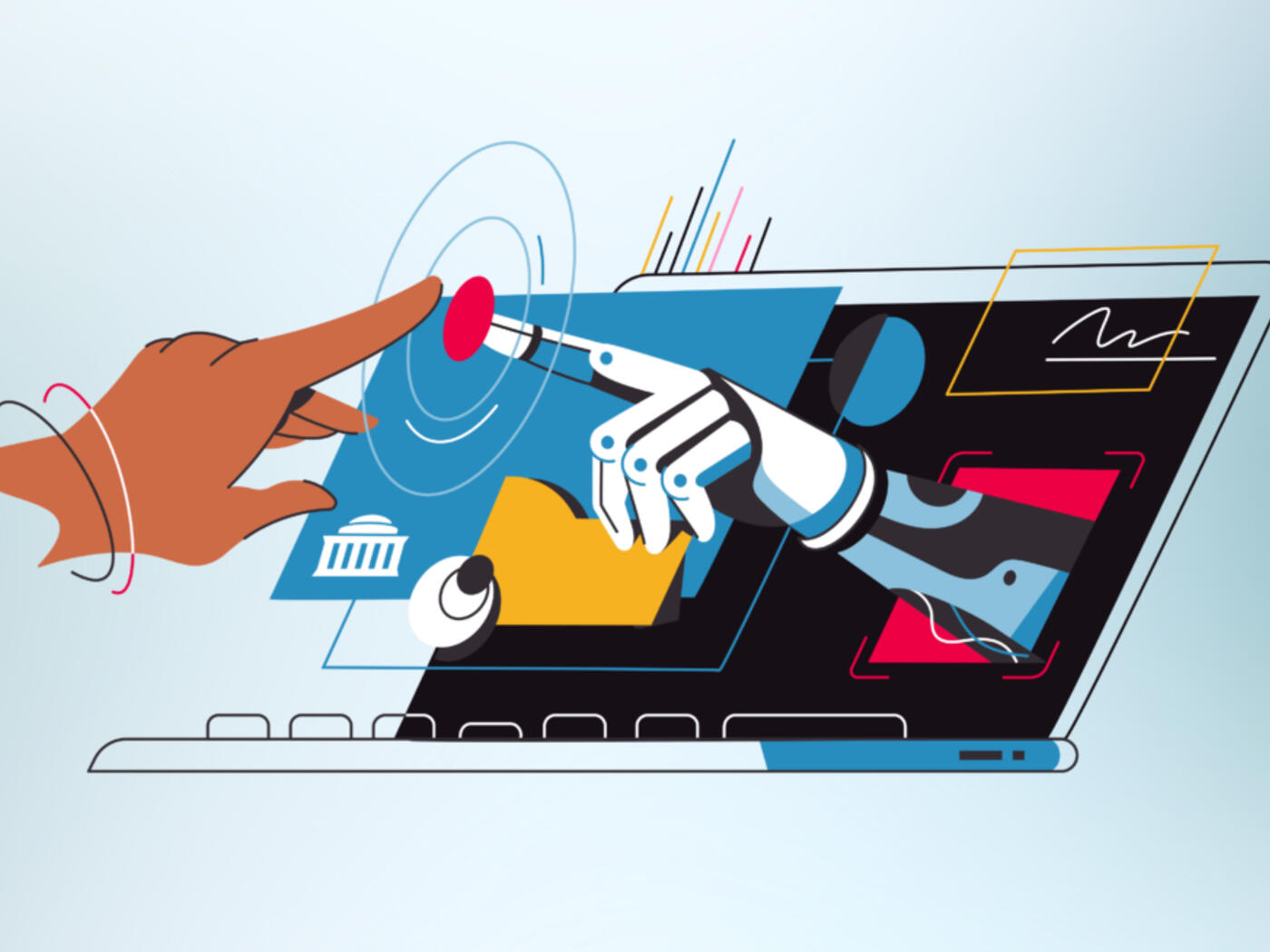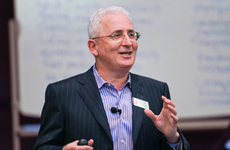Artificial Intelligence at MIT Sloan
MIT Sloan leads AI research and teaching. Dive in to discover why.
Ideas Made to Matter
5 issues to consider as AI reshapes work
Experts say those making decisions about AI should engage proactively with policymakers and consider worker voice and well-being.
Learn MoreFeatured News
Managers and workers need to collectively develop new expectations and work practices to ensure that any work done in collaboration with generative AI meets the values, goals, and standards of their key stakeholders.Read More
AI Working Definitions
An Instagram series on ideas about AI and data science.
Georgia Perakis Explains Fundamental AI Terms
Our people, our stories

Leading the AI-Driven Organization
In person at MIT Sloan
Register Now
AI Expert Spotlight
We asked several MIT experts about their latest projects and what they see as the most exciting—and concerning—aspects of the AI boom. Scroll through or see them all here.
In the News

-
Forbes

A recent study by professor Thomas Malone, assistant professor Abdullah Almaatouq, and co-author suggests humans and artificial intelligence don't necessarily work as well together as many assume. The looming question is what is the point in which human tasks and AI tasks are best blended?
-
Time

Institute Professor Daron Acemoglu said: "I think right now business leaders are under tremendous pressure to do something on AI just to show it. For most businesses, the case for huge investments in AI is not clear. I think the case for tracking it, understanding it, and planning for later investments is much clearer."
-
The New York Times

DebunkBot, an A.I. chatbot designed by researchers to “very effectively persuade” users to stop believing unfounded conspiracy theories, made significant and long-lasting progress at changing people’s convictions, according to a study published in the journal Science by co-author David Rand. “It is the facts and evidence themselves that are really doing the work here,” he said.
-
Business Insider

The glaring problem with publicly available AI tools is that they're "inherently sociopathic," professor Andrew W. Lo and co-author wrote in a research report. "This sociopathy seems to cause the characteristic glibness of large language model output; an LLM can easily argue both sides of an argument because neither side has weight to it," they wrote. It may be able to role-play as a financial advisor by relying on its training data, but the AI needs to have a deeper understanding of a client's state of mind to build trust.
-
The Economist

Despite the fact that the early internet was dominated by men, for example, young American women were more online than their male counterparts by 2005. On top of this, professor Danielle Li notes that the studies do not actually show whether men's current ChatGPT use translates into better or more productive work. At the moment, the technology may be more of a digital toy, she says. Perhaps, then, high-achieving women are simply better at avoiding distraction.
-
Scientific American

While Google's AI answers may initially cause a big jump in the search engine's energy costs, the costs may begin to decrease again as engineers figure out how to make the system more efficient, said professor of the practice Rama Ramakrishnan. "The number of searches going through an LLM is going to go up, and therefore, probably, the energy costs are going to go up. But I think the cost per query seems to be going down."
-
Harvard Business Review

Associate Dean Dimitris Bertsimas and co-author wrote: "For those private market investors willing to embrace external data, the rewards can be significant. By harnessing the power of external data, they can gain a crucial advantage in an increasingly competitive market, driving success for themselves and their portfolio companies."
-
CNBC

Professor Stuart Madnick and his team have simulated cyberattacks in the lab, resulting in explosions. They were able to hack into computer-controlled motors with pumps and make them incinerate. Attacks that cause temperature gauges to malfunction, pressure values to jam, and circuits to be circumvented can also cause blasts in lab settings. Such an outcome, Madnick said, would do far more than simply taking a system offline for a while, as a typical cyberattack does.
I've gained deep insights into cutting-edge technologies and had the chance to connect and network with industry leaders. I have been completely struck by the rapid advancements in generative AI and taking courses or working on projects related to deep learning has been a rewarding experience.Read More
Teaching & Learning Resources
Generative AI for Teaching & Learning
Explore our resources to unlock AI's potential for enhancing teaching and learning at MIT Sloan.
Learn MoreCenters, Initiatives, & Programs


AI Executive Academy
In person at MIT Sloan
Register Now
Human-Centered AI
AI at MIT Sloan

Generative AI as a platform for applications development
By
Generative artificial intelligence is rapidly emerging as a key foundational platform for new applications. But hurdles remain, according to researchers.
MIT entrepreneurs explain what founders need to know now
By
Launching a venture? Here’s advice from MIT entrepreneurs in residence on navigating artificial intelligence, the economy, and uncertainty.
How organizations build a culture of AI ethics
By
From risk management policies to the five stages of AI ethics, here’s how some organizations approach ethical AI.
Practical AI ideas from MIT Sloan Management Review
By
Colgate-Palmolive, Sanofi, and other firms are making generative AI work for them in ways both big and (intentionally) small.
























